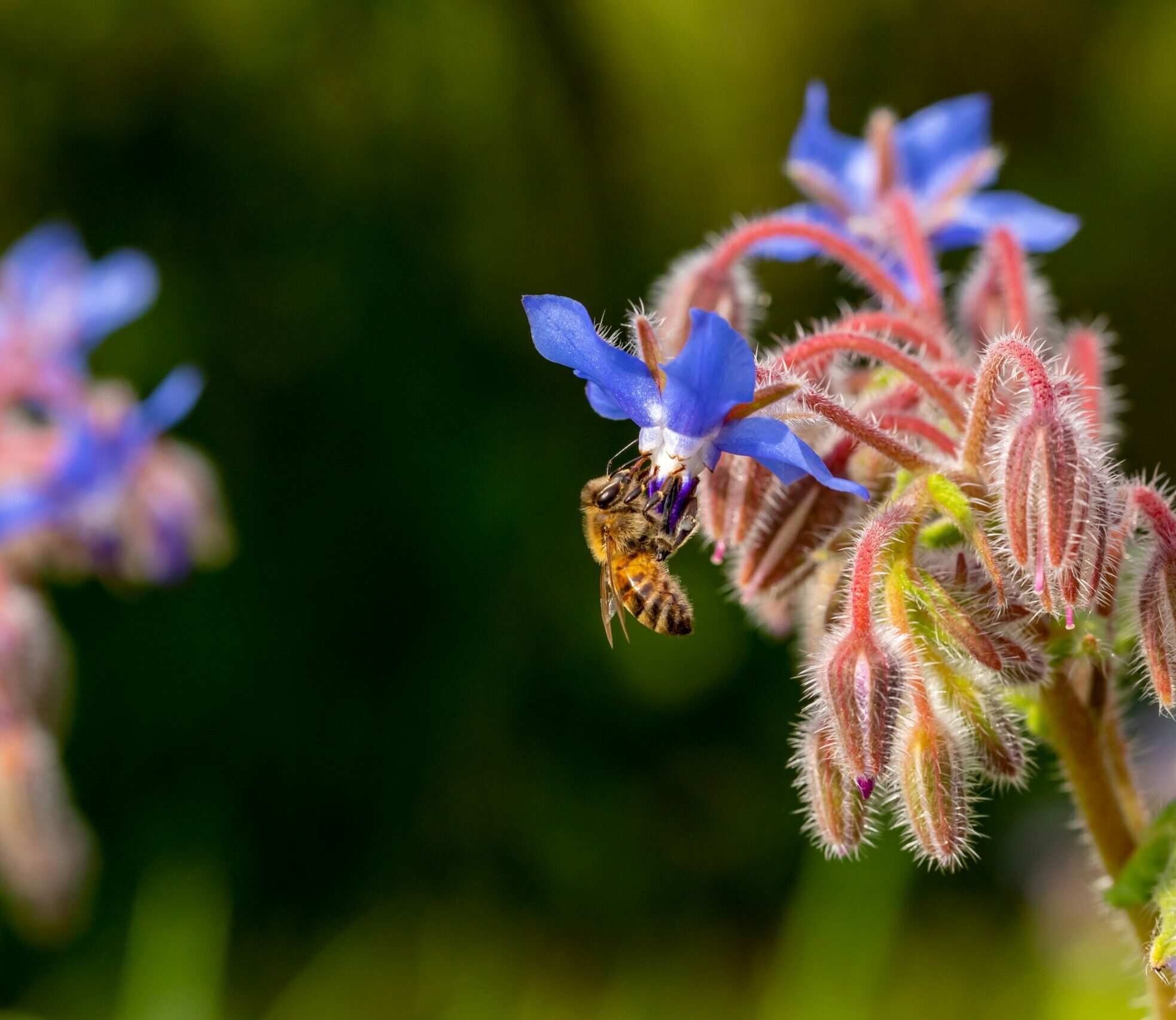Celebrating World Bee Day
Today, we celebrate World Bee Day and recognize the vital role bees play in our ecosystem!
One of our Cefetra Group companies, Premium Crops, is a farm seed supplier in the United Kingdom and sell oil seed break crops such as borage. And borage is loved by beekeepers, providing the bees a rich source of nectar. We are dedicated to supporting bee populations. Today, we share fascinating facts about bees and their incredible contributions to our world.
The diversity of bees in the UK
Did you know that the UK is home to about 250 species of solitary bees and bumblebees, along with one species of honeybee? These bees are essential pollinators, each playing a unique role in maintaining the health of our ecosystems.
- Solitary bees and bumblebees: These bees live in small colonies ranging from 12 to 300 members.
- Honeybee colonies: A small honeybee colony can have around 20,000 bees, while a large colony might boast up to 80,000 individuals.
Bee behavior and hive dynamics
Bees are fascinating creatures with complex behaviors and intricate hive dynamics:
- Foraging: Bees typically forage when the air temperature is above 10°C.
- Bee keepers vs. Bee farmers: Bee Keepers usually manage up to 50 hives, while Bee Farmers often handle more than 50 hives.
- Lifespan of wings: A bee’s wings can last around 600 hours or 500 miles of flight.
The importance of bees in pollination
Bees are crucial for pollination, contributing to over 75% of global food crops. Their value to the global ecosystem is estimated at over €150 billion annually.
- Oilseed rape honey: This honey is high in sugar and often crystallizes at room temperature. It is commonly blended with other honey types like Heather and Borage honey for a rich flavor.
- Borage crops: Premium Crops recommends that borage growers keep at least two hives per hectare of crop to enhance pollination and boost yield. Visit their website for more information!
Bee communication: The dance language
Bees communicate through intricate dances to share information about nectar sources:
- Waggle dance: Performed to inform other bees about a nectar source.
- Shake dance: Conducted when nectar sources are abundant, signaling the need for more foragers.
- Tremble dance: Indicates that more bees are needed to process the surplus nectar into honey.
The lifecycle and roles of worker bees
Worker bees undergo various roles throughout their lifetime, each crucial for the hive’s survival:
- Nurses: Care for baby bees.
- Undertakers: Clean the hive of dead bees.
- Builders: Produce beeswax for the hive.
- Housekeepers: Maintain hive cleanliness.
- Fanners: Control hive ventilation.
- Foragers: Collect pollen and are equipped with a functional sting.
- Guards: Protect the hive with a well-developed stinger.
- Queen’s attendants: Groom and feed the queen.
- House bees: Convert collected nectar into honey.
- Royal jelly providers: Feed male drones to support their development.
Supporting bees
Premium Crops understands the importance of supporting bee populations for sustainable agriculture. Borage crops are particularly beneficial for bees, providing a rich source of nectar. By encouraging the maintenance of hives near borage fields, we help ensure robust pollination and healthier crops.
For more information on beekeeping and the role of bees in agriculture, visit our recommended resources:
https://www.thebeefarmer.co.uk/
https://www.syngenta.com/en/sustainability/operation-pollinator
This World Bee Day, let’s celebrate and protect these remarkable pollinators that are so vital to our ecosystem and food supply. Together, we can make a difference in supporting bee populations and promoting sustainable agricultural practices!


